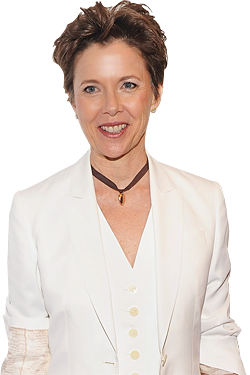
It’s perhaps difficult to use the word “anonymity” in reference to a three-time Oscar nominee, but like her husband Warren Beatty, Annette Bening exhibits a pickiness that often keeps her removed from the public eye. That’s changing this summer: In July she’ll star in Lisa Cholodenko’s Sundance hit The Kids Are All Right, and she can currently be seen in Rodrigo Garcia’s Mother and Child, in which Bening breathes life into Karen, an abrasive single woman who’s still carrying emotional baggage from giving her baby up for adoption as a teenager. Vulture recently caught up with Bening to talk about playing a woman in turmoil, adoption, and the motivation of fear.
Issues of adoption are at the core of each of these films, with some interesting ruminations about what our biology means. In Mother and Child, for instance, we see some of Karen’s prickliness manifested in Elizabeth, the biological daughter she’s never met.
Right, they’re kind of cut from the same cloth. And that’s in the writing. I loved that, and yet we never discussed it. Neither Rodrigo nor [co-star] Naomi Watts nor I wanted to pull away from that. I wanted to walk that line, where in the beginning I’m sure some people [in the audience] really don’t like Karen. And that’s exactly right, that’s the entire point. She’s the person you meet in the grocery store who’s just unpleasant. You’re not drawn to them and you wonder how this person functions in the world, and the answer is not very well. I thought that was an important note to strike, especially given where I was going to go.
This movie explores the mental anguish attached to giving up a child for adoption.
It’s kind of a mystery to me, as far as my own life experiences and what I’ve witnessed — why some people can just move on through traumatic experiences, in childhood particularly, and why other people are just paralyzed by it. I just don’t know how and why that is. In looking at this particular woman and her circumstance — being 14 and getting pregnant — I was in high school in the seventies and actually saw this happen. There was a girl I’d known since we were little, playing together in the same neighborhood as kids. We got to high school and she was just gorgeous, and a really vivacious person. All of a sudden she was just gone. I went to a big high school, with over a thousand people in each class, but I still remember her just suddenly disappearing. And of course she’d gotten pregnant and was just sent away. But I also knew girls who got abortions, because by the time I was in high school Roe v. Wade had passed and people were also making that choice. So the sexual revolution was in gear, and yet the sensibility and the mores where I grew up in suburban San Diego were still very, very conservative. So I tried to get into as many first-person accounts of women who’d been through this as I could, and Karen wasn’t unusual — a lot of these women were really traumatized by this. There’s the shame on you, the shame on your family. And then does the boy [who got the girl pregnant] know? In some cases, it was very traumatic for the boy, too, and you never hear about that.
Which is interesting, because the movie features Karen’s adult reconnection with that boy, where she says, “I’ve never felt with anyone what I felt with you.”
I bought that, and I found David Morse such an interesting actor who brought so much to this guy. It made perfect sense to me that Karen had to go and see him, and also that she’d never done it. She’d have been much healthier if she’d done it twenty years earlier, of course, but it made such sense to me — the fact that she was so wounded by what happened that she’s been paralyzed.
There’s a rigidity to Karen’s behavior which is at times heartbreaking.
Oh, well, thanks. What really motivates you to try to work things out as an actor is in large part fear, because you want to get into that narrative and bring the audience along. It’s really in the writing, because if it’s not there you can’t find or create it alone. But if it’s there, and in the sensibility of the director, you’re able to locate [a different] body language. You have to know a little bit about here to there, because you’re shooting all over the place. But you also don’t want to try to plan it too much, because then it’s dead. You want it to seem like lightning in a bottle.




